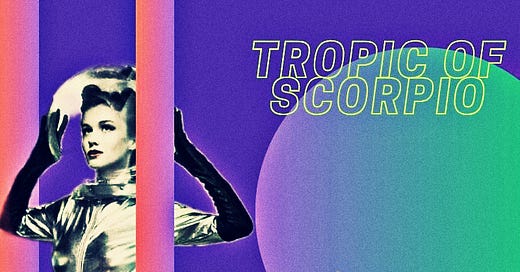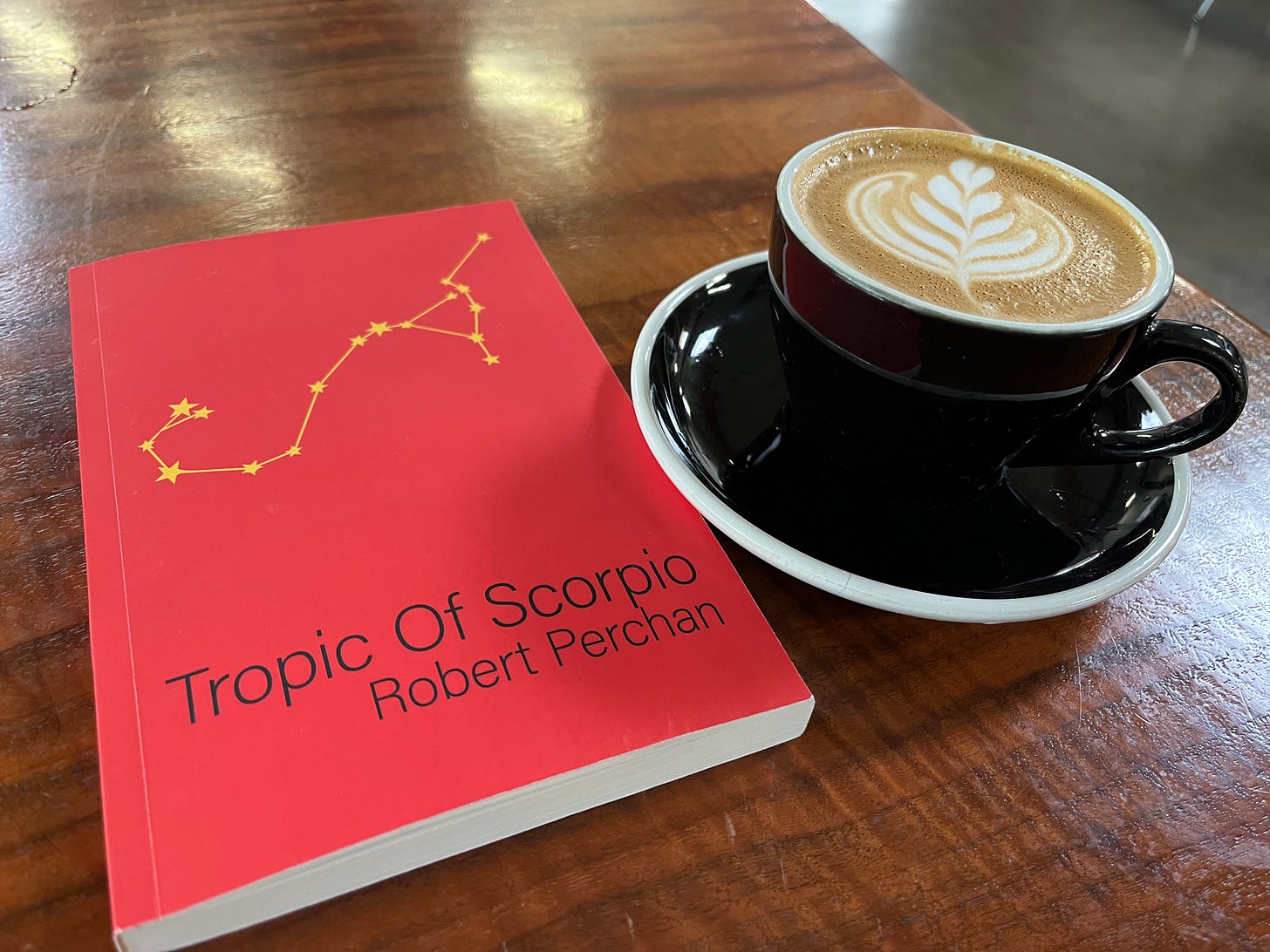by Peter Clarke
What are we going to do with ourselves when the ultra-elite start tinkering with their genetics to become taller, smarter, and more beautiful? What will you, in particular, think when your ex-girlfriend fakes her own death only to return from the heavens in an airship, dressed as an alien? And what if you suspect she’s being augmented just like one of the ultra-elite, but you can’t quite tell through the alien suit?
These are just a few of the questions vaguely floating through my mind as I work my way through the opening pages of Robert Perchan’s Tropic of Scorpio. At least one question has been answered so far. Is this a science fiction book? No, not exactly. At least, it’s not an alien-invasion story. The girl in the alien suit had me wondering about that for a moment.
I read a fair share of strange fiction. It comes with the territory as the editor of a journal called Jokes Review. One thing that always holds true: Fiction with strange or weird elements works best when those elements are grounded in serious or thought-provoking themes. You’ve got to have a least a little social commentary, a little satire, a little pop psychology.
In this respect, Tropic of Scorpio succeeds brilliantly. Frankly, it’s hard to discern the limits of the social commentary and the satire in Perchan’s work. There’s so much of it you’d almost think Tropic would be as impenetrable as a Thomas Pynchon novel. Instead, even from the opening lines, Tropic is a straightforward read with snappy, unpretentious, fun prose.
Yes there are aliens and some kind of ultra-elites augmenting their bodies. And yes the story takes place on a remote South Korean island where every local character seems to be implicated in one uncanny subplot or another. And one local lady—partially augmented—eats mice at the bar for a reason that’s never entirely clear. But no matter how strange the story gets, Perchan holds his world together masterfully—even as the world crumbles around the ill-fated protagonist, Harold Ratner.
I won’t attempt to describe or parse the social commentary presented in Tropic of Scorpio. I’d be happy to get into it in a noisy dive bar with a few pitchers of beer, perhaps. But it’s a little too illusive and much too dangerous to discuss here. Suffice it to say—well, yeah, there are those questions. And many others.
On another level, it’s worth noting that Tropic of Scorpio essentially serves as a canvas for Perchan’s dark and absurdist humor to flourish. When Harold Ratner isn’t getting spooked by his ex-girlfriend in an alien suit, he teaches comedy to a group of aspiring standup comedians. Several chapters—and in fact large chunks of the book—are dedicated to either comedy lessons or comedy routines. This strikes me as a risky call on Perchan’s part, as what tends to pass as standup comedy so often falls flat in writing. But many of these passages are genuinely hilarious, and they’re always entertaining to read—even when intentionally written to be awkward or cheesy.
How Perchan managed to juggle fake aliens, body modification, socioeconomic class division, culture division, something about human evolution, and comedy lessons all in the same short novel…really is a thing to behold. And certainly a thing to read. With just a few questions left over.
Peter Clarke is the editor-in-chief of Jokes Review. Read his Substack newsletter The Decadence Project and follow him on Twitter @heypeterclarke.





